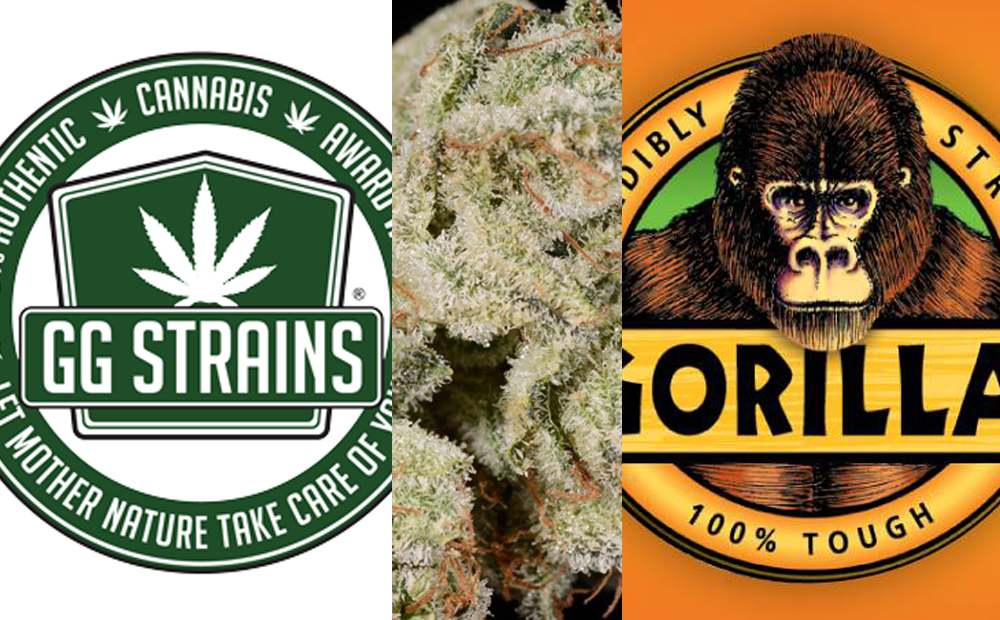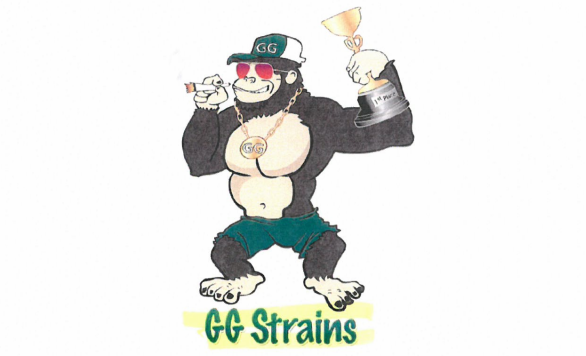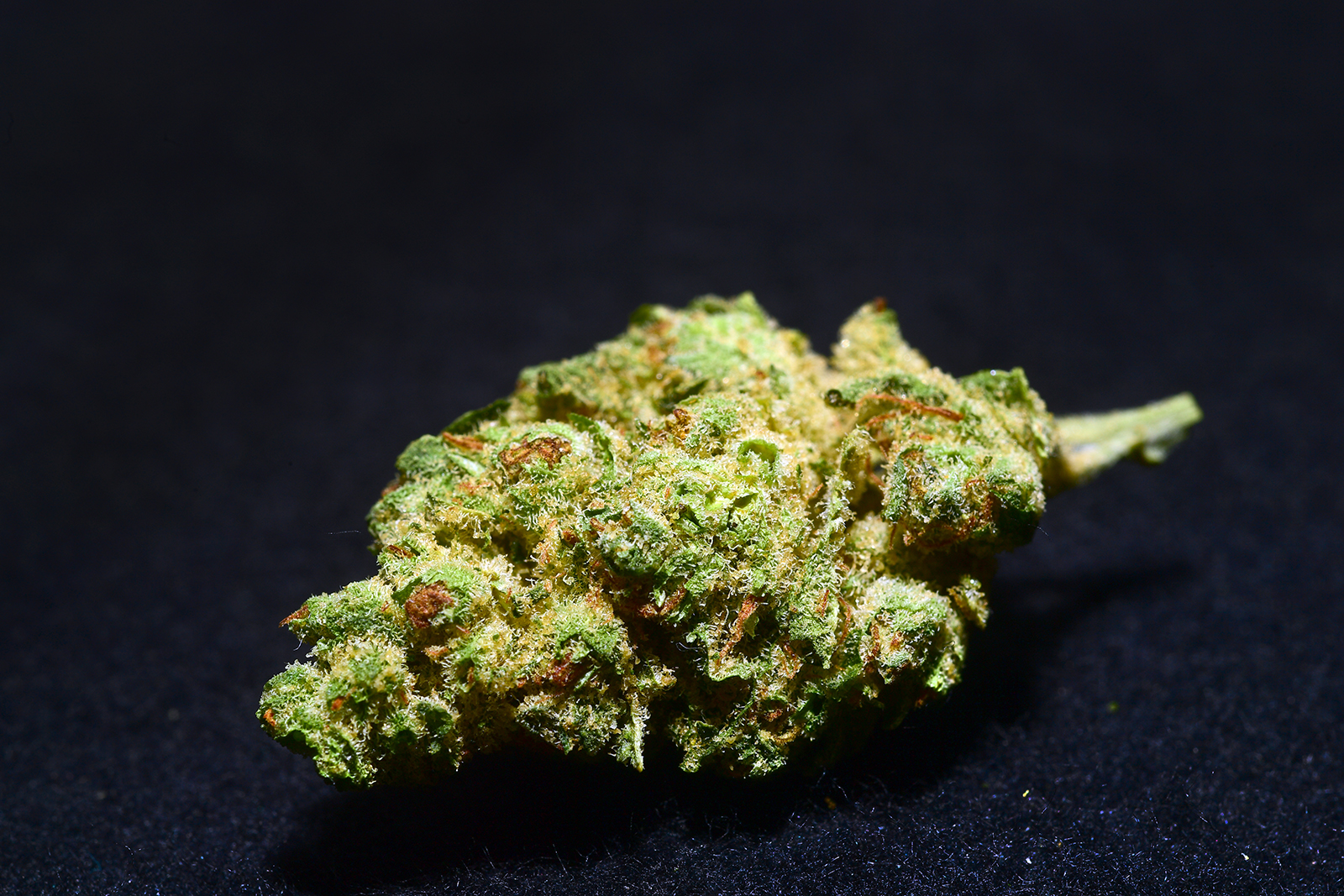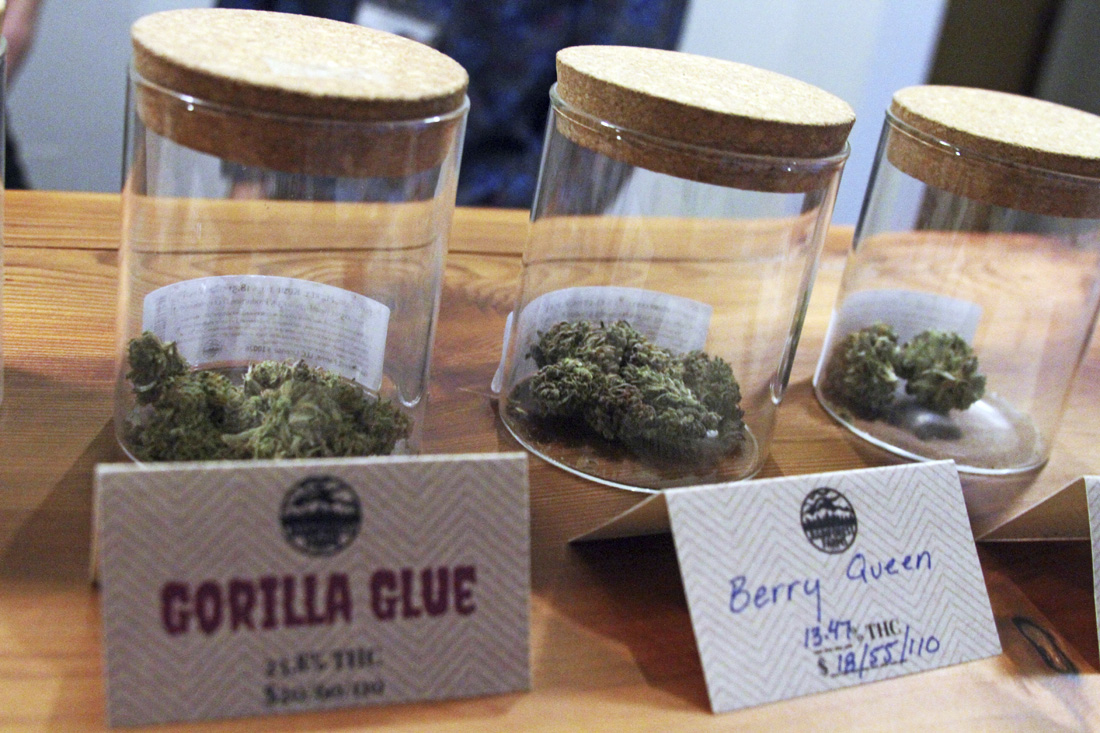This origin story is the stuff of legend in the cannabis world.
Back in 2012, A Nevada medical marijuana cultivator working under the under the uniquely spelled pseudonym “Joesy Whales” was trimming a new plant born from a happenstance encounter between established strains Chem’s Sister, Sour Dubb and Chocolate Diesel.
The phone rang.
When Whales, whose real name is Jackie Don Peabody, answered the call, the resin secreted by the flower caused his hands to stick to the phone like glue.
The hybrid marijuana strain was thus christened: Gorilla Glue #4.
UPDATE: Settlement reached in Gorilla Glue strain trademark lawsuit
But the branding inspired by what has been called an innocent story of inception has landed the fabled breeders of the highly decorated, extremely potent and wildly popular Gorilla Glue #4 in an even stickier legal situation.
The Gorilla Glue Company — maker of adhesive products such as Gorilla Glue, Gorilla Epoxy and Gorilla Tape — is suing GG Strains LLC, the company founded by Peabody and business partner Ross Johnson, alleging trademark infringement, dilution, unfair competition and cybersquatting. By licensing and marketing products under “confusingly similar” names, GG Strains is ultimately trading on the reputation and goodwill that the family-run, Sharonville, Ohio-based company built over 23 years of business, according to the March 24 complaint.
Although not the first litigation of its kind in the cannabis industry, the case represents another coming-of-age moment for the maturing legal industry: The fun-loving, guerrilla marketing of marijuana’s underground heyday is now being viewed in the same light as that of traditional industry.

As Gorilla Glue Co. moves to protect a brand built over more than two decades, the entrepreneurs behind GG Strains said a loss wouldn’t just be detrimental to their company, it would also set an awful precedent for intellectual property in the cannabis industry.
“We’re not millionaires, we’re cannabis breeders and cultivators,” GG Strains’ Johnson told The Cannabist. “Most people have backed down from corporate businesses, so no case has set precedent as of yet. Down the line, this (case) will set the precedent.”
No longer an underground concern
The court complaint filed by Gorilla Glue Co. is 140 pages, laden with lists and images of the company’s trademarks juxtaposed with pictures from GG Strains’ state trademark applications, which include cartoon art such as a sunglasses-wearing gorilla smoking a blunt with one hand and holding an award chalice in the other.
Another exhibit includes a screenshot of Facebook search results for “gorilla glue” — it shows an alternating mix of posts about repaired coffee mugs and images of trichome-covered nugs.

GG Strains’ apparent ambitions with respect to continued use and growth of the name has increased as medical and recreational use of marijuana have been legalized in more and more states, Gorilla Glue Co.’s complaint alleges.
“This lawsuit is not a comment on any federal or state policy matters, medical or pharmaceutical issues, or choices in recreation,” the complaint states. “But Gorilla Glue has a famous, valuable brand built through tremendous products and strong consumer confidence, and as a business matter must take appropriate steps to protect its rights.”
GG Strains is no longer an underground concern, said Gorilla Glue Co.’s attorney Thomas F. Hankinson, a partner with the Cincinnati firm Keating Muething & Klekamp PLL.
“It is a business that should be held to the same standards of fair play in branding that apply to all other businesses,” Hankinson told The Cannabist. “GG Strains not only took the name, but intentionally traded on Gorilla Glue’s reputation for high-quality adhesives’ ‘stickiness.'”
Gorilla Glue Co. officials declined to be interviewed for this story, citing the ongoing legal matter and referred questions to attorney Hankinson.
“Gorilla Glue (Co.) just wants to protect its brand and communicate reliably with its customers through that brand,” Hankinson said.
“GG Strains’ side of this case is ironic,” he added. “Their whole business model is making cannabis industry players pay a license fee for the name, which they don’t even own. So when they pitch it as ‘Gorilla Glue versus cannabis,’ that is far from the case.”
“The dominoes have already started to fall”
While the outcome of Gorilla Glue Co. v. GG Strains could influence future trademark cases in and beyond the cannabis industry, the lawsuit isn’t terribly surprising, intellectual property attorneys told The Cannabist.
The case should stand as a stark reminder for other marijuana firms that they’re no longer operating in the shadows, said Amanda R. Conley, a partner at Oakland, Calif.-based Brand & Branch LLP, which provides intellectual-property legal services to the cannabis, technology, gaming and publishing industries.
“If anything, it’s surprising it took so long,” she said.
Mainstream brands already have been eyeing the cannabis industry, said Shabnam Malek, a Brand & Branch partner and president of the National Cannabis Bar Association.
In 2014, The Hershey Co. sued Colorado Springs-based TinctureBelle for breaching design and name patents by selling edibles that resembled Reese’s, Almond Joy and Heath candy bars. Months later, TinctureBelle settled, agreeing to recall and destroy its edibles — with names such as Reefers, Ganja Joy and Hasheath — that looked like Hershey products.
The Girl Scouts of the United States of America have sent out demand letters to dispensaries, requesting they cease selling marijuana with the Girl Scout Cookies name, Conley observed.
Several of Brand & Branch’s cannabis clients have been approached by mainstream companies alleging infringement, Malek said.
“The dominoes have already started to fall,” she said.
The cannabis industry does have unique concerns relative to trademark matters, both attorneys said.
For instance, businesses that previously operated in the shadows don’t have the luxury of establishing years of use for a trade or design mark. Likewise, the companies might not have been able to avail themselves of legal services because of bar association restrictions.

Furthermore, strain names can be considered varietals, and thus are not capable of serving as trademarks, and common-law trademark rights are limited to geography, creating issues when a cannabis company looking to expand out of state via licensing encounters another company of the same name.
“One issue that we still haven’t really tested,” Conley said, “is to what extent a cannabis company can assert trademark rights in federal court.”
The bottom line, she said, is that cannabis companies should be prepared to rebrand if they believe they are violating another firm’s trademarks.
“We’re not selling glue”
Faced with the prospect of conflict with The Gorilla Glue Co., GG Strains did indeed remarket their award-winning marijuana strains this spring, said the company’s interim CEO Catherine M. Franklin. Gorilla Glues #4, #1 and #5 are now marketed as GG#4, GG#1, and GG#5.
However, it’s tricky for GG Strains to ensure those rebranding practices extend everywhere cultivators are growing, dispensaries are selling and consumers are seeking the famous strain, Franklin said. And sometimes, strains advertised and sold as Gorilla Glue #4 aren’t actually grown from GG Strains’ proprietary plant genetics, she added.

Following GG Strains’ rebranding efforts, Gorilla Glue Co. offered to settle the case, Franklin said. That initial settlement offer was a no-go, she said, because it required GG Strains to relinquish its website, gorillaglue4.com, and trademarks.
Said GG Strains company partner Johnson: “If we settle with these guys outside of court, they’re going to go after everybody,” referring to the cultivators and dispensaries that grow and sell the strain, along with the merchandise they produce referencing the strains.
The cannabis company argues that the two brands should coexist — much akin to Delta Airlines and Delta Faucet, or Dove soap and Dove Chocolate.
“We’re not selling glue,” Franklin said, claiming that Gorilla Glue #4 was denied a federal trademark because it was cannabis, not because they were violating trademarks on similarly named products.
“It was a name that kind of stuck,” she said. “We didn’t piggyback off anything. Nobody is buying this thing because they like glue.”
Another fight: Which court should hear case?
Jurisdiction for the case is also a serious concern for GG Strains.
The Gorilla Glue Co. filed the suit in its home state of Ohio. GG Strains, on the other hand, argues that the battle should play out in Nevada, where the company operates.
The lawsuit was filed in Ohio federal district court because Gorilla Glue Co. alleges that “one or more residents in Ohio have purchased clothing directly through defendant’s website, the defendant received payment from Ohio through its website, and the clothing was shipped to Ohio.”
GG Strains officials claim they were “baited” into the Ohio courtroom. They allege that only two purchases from Ohio were made through GG Strains’ website, and that those purchases were made by Gorilla Glue Co.’s chairman and a vice president.
Gorilla Glue Co.’s attorney denied the baiting claim.
“I can’t argue legal matters in the newspaper. There are many reasons that this case is properly in Ohio and facts supporting those reasons. The strain is in Ohio. Their interactive marketing and promotion are reaching Ohio. And yes, they also sold shirts to Ohio,” Hankinson wrote. “There’s no ‘baiting’ here. If anything, they are talking about some purchases that prove their national clothing offerings, including but not limited to Ohio, are real — not a dead link or something that is advertised online but not real when you place an order.”
GG Strains company partner Johnson said that were the case to move forward in Ohio, it would put immense strain on the Las Vegas-based company and adversely affect the health of defendant Peabody, who requires dialysis.
“We’re not the youngest,” Johnson said. “(Peabody is) 63, I’m 59. For us to go fight a battle in Ohio … it would literally be impossible for us to do it correctly.”
“They’re going to listen to Joesy Whales”
Settlement talks between Gorilla Glue Co. and GG Strains have been rekindled in recent days.
On Wednesday, attorney Hankinson told The Cannabist that Gorilla Glue planned to reenter settlement talks. He confirmed that he had previous settlement talks with GG Strains’ founders, interim CEO and lawyer, but said he could not comment on the specifics of the discussions, citing confidentiality agreements.
“We can say that GG Strains backed away from prior conversations and shut down the negotiations,” he said. “We’re certainly still open to it.”
GG Strains’ Franklin confirmed that a request to reenter settlement talks was made, but said her firm had some needs of its own.
The cannabis company is seeking a two-year transition period during which it can work with cultivators and dispensaries to rebrand Gorilla Glue #4 to GG#4.
The transition period would also help GG Strains rein in the unauthorized activity, Franklin said.
“It would allow the celebrity status that GG#4 has achieved and maintain that (status) without having more people come in and be able to manipulate her,” she said, adding that she was confident the growers of GG#4 — even those growing unauthorized strains — would work with GG Strains to stay on the right side of the law.
“They’re going to listen to Joesy Whales before they listen to the Gorilla Glue (Co.),” she said, referring to Peabody’s popular pseudonym.
Considering Peabody’s state of health and inability to travel, GG Strains officials said they’ve requested that Gorilla Glue Co. executives travel to Las Vegas for any settlement discussions.
“We want to see if we can work together,” Johnson said Wednesday. “Sit down mano to mano, owner to owner, creator to creator and see what happens.”
Read the lawsuit
GG Strains Gorilla Glue Corporation Marijuana Lawsuit (Text)
